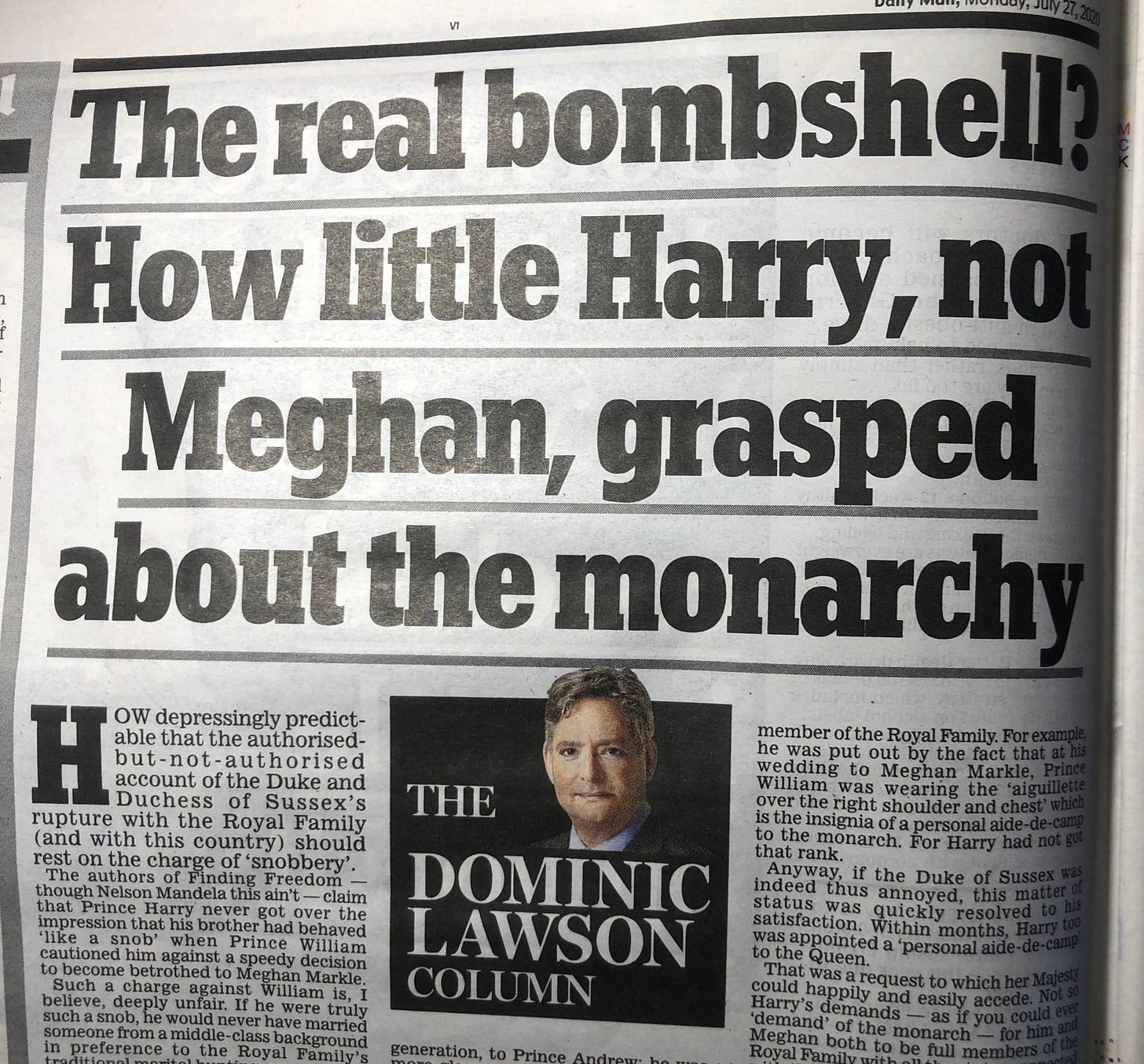Meghan Markle and media misogynoir: How the UK media perpetuates colonial narratives
Assiah Hamed writes, "The media’s perception of racism is actually perpetuating the struggles of black women in Britain..."

The death of George Floyd on May 25th 2020 sparked international outrage and catalysed a series of protests around the world. Here in the United Kingdom, black Britons like myself were once again outraged by the unbroken system of institutional racism that continues in our societies.
But the British mainstream media was ‘oddly’ shocked by such thunderous reactions from black and brown minorities, with many such outlets claiming the Black Lives Matter movement was now having its “#MeToo moment”.
This is just one example of many that show the systemic efforts to erase the longstanding political and social discourse concerning the mistreatment and misrepresentation of black Britons throughout time. And honestly? We are fed up.
It is that exact failure and intentional neglect on the part of the media to inform the public by intensifying white-centric narratives.
For example, we have witnessed racists being excused and perpetually victimised by the media to uphold an obscure idea of British identity, while reducing racism to small everyday microaggressions to stroke white people’s ego and having so-called ‘wokeness’ to solve what black people endure.
Spoiler alert: You’re the problem. Problem solved.
In the midst, it has prevented paying close attention to racism being in fact inherently gendered, but I do not think people are ready to have that conversation yet.
In this analysis of the most recent iteration of racism in contemporary Britain, this notion must be up for discussion.
The truth is that we are excluding the voices of black British women who have been incessantly undermined.
Moreover, such a portrayal of racism and sexism as being mutually exclusive dismisses the conversation of why black women instead become the centre of mockery, vilification, and over-sexualisation.
This ridicule is of no surprise to high-profile black female figures in Britain. It’s most recently apparent in the treatment of Meghan Markle, who due to having some proximity to being… b… Bl… black… is subject to permanent and enhanced scrutiny.
Every black British woman has squirmed in discomfort reading articles written about Markle that would never be written about her sister-in-law Kate Middleton. If having your son compared to a baby chimpanzee just hours after the announcement of his birth is not seen as outright racism, then I really do not know what will be.
British tabloids deny their attacks on Markle are ever about race and begin blaming the far-left Illuminati agenda and PC culture for having the audacity to highlight questionable commentary of a famous black woman. Because in the eyes of many broadcasters and all of the tabloids, there is always something wrong with women like Meghan Markle. So, I wonder what that might possibly suggest? God knows.
These are the same tabloids that allege that there is zero correlation between the media’s treatment of Diane Abbott, Britain’s first black female MP, and her receiving 45% of hate mail sent to all female politicians.
Black women should not be the exception to the rule about what constitutes racism, and this should not be dictated by racist and sexist principles that allow black women to be dehumanised caricatures and punching bags.
This succeeds by whitewashing the true meaning of equality and feminism as media outlets eagerly race to organize inflammatory debates for higher viewership about whether a blatantly racist incident was indeed racist.
However, as much as there should be a push for black British stories being told in our history books, such change cannot be conducted without including black female voices.
That must be done through a deeper understanding of intersectionality in the study of racism.
The British public must be fully equipped to have a sophisticated dialogue about race and racism without squirming in their seats with astonishment. Ultimately, what triggers that discomfort is that those conversations force beneficiaries of privilege to finally confront Britain’s imperialist past and present whether they like it or not.
Assiah Hamed is a student on the Channel 4 Investigative Journalism MA. You can follow her on Twitter (and should) @AssiahHamed


